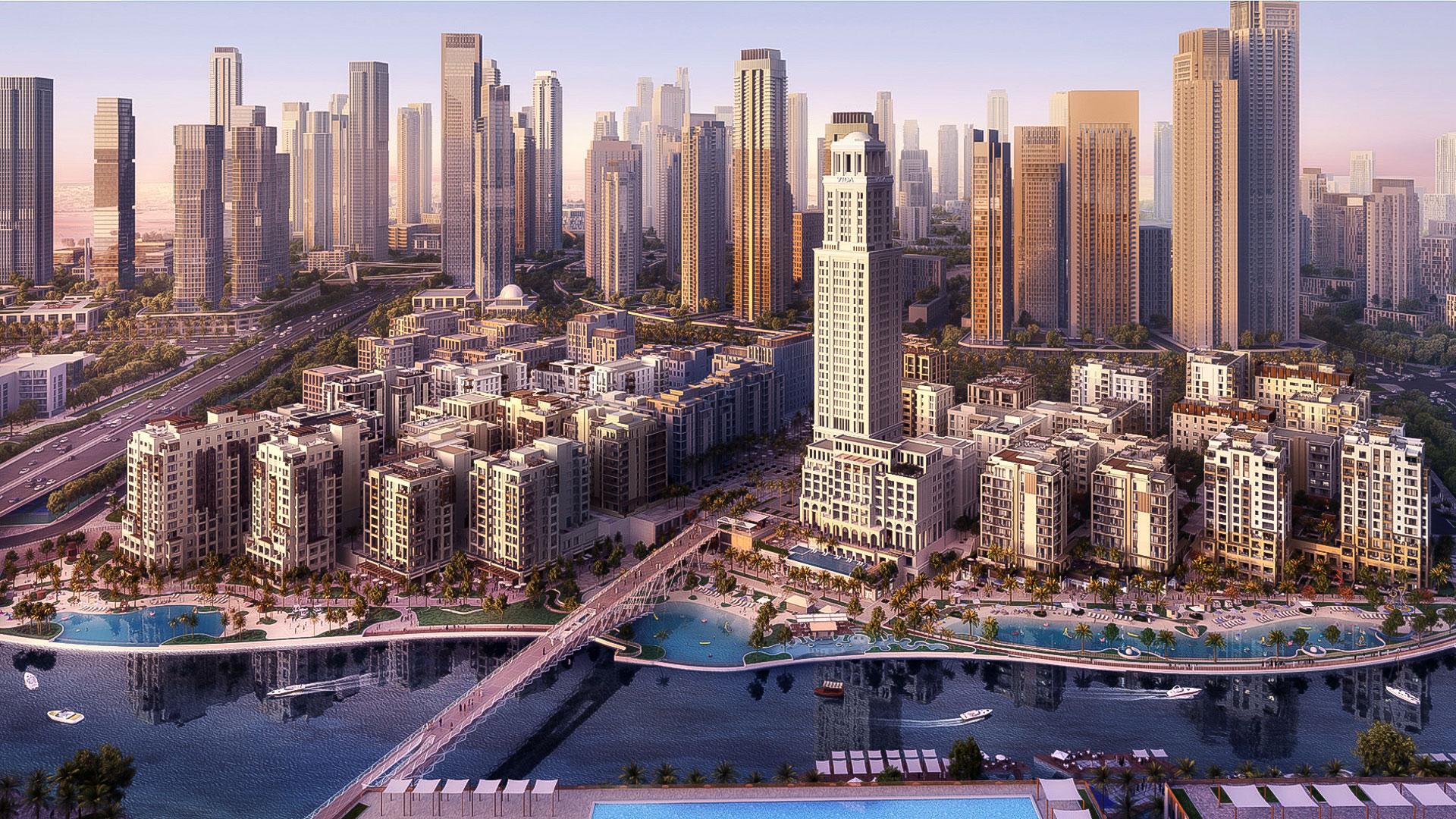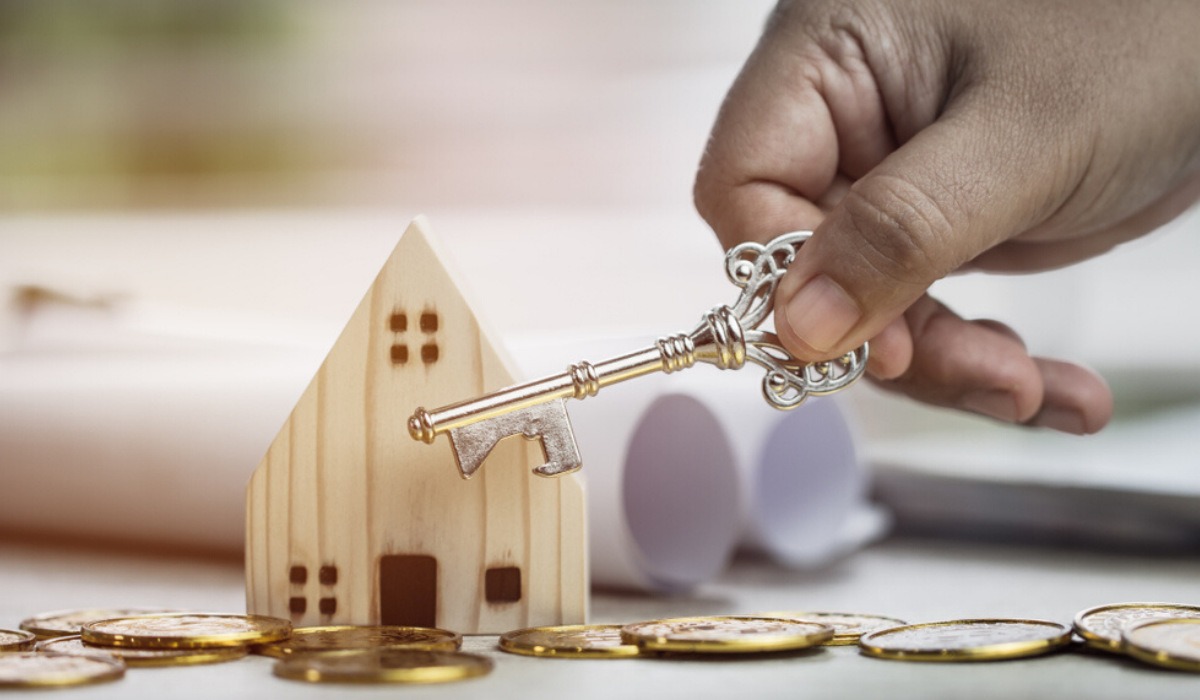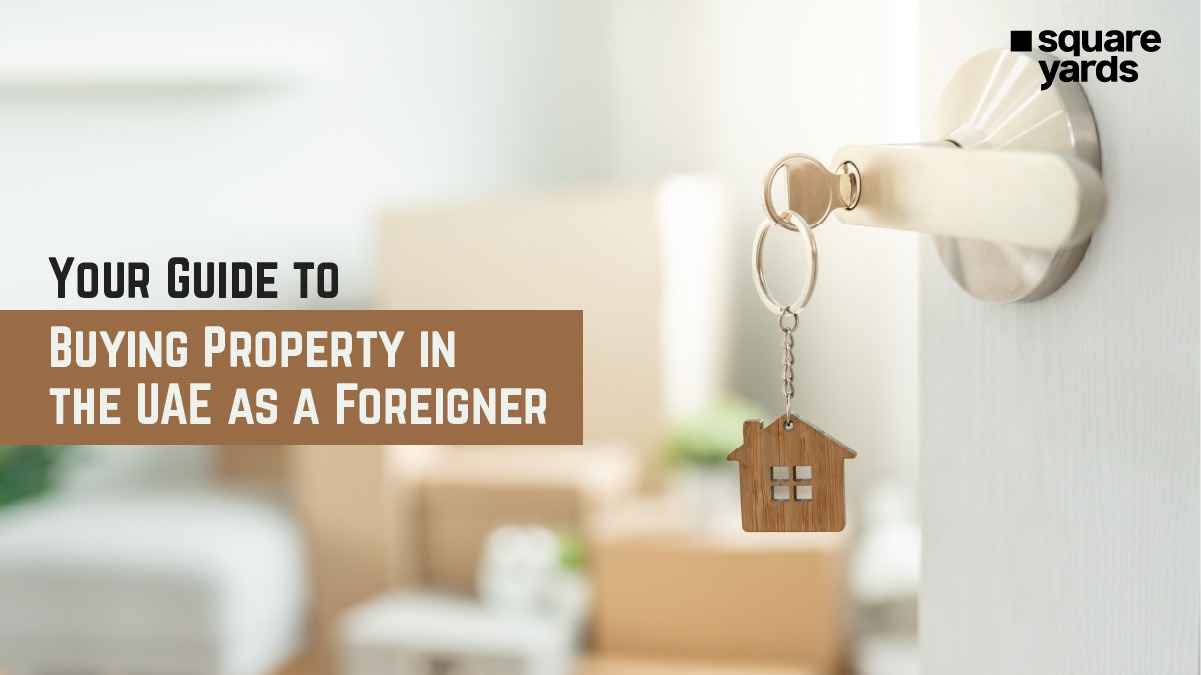The United Arab Emirates is known for having one of the most stable and transparent property markets in the Middle East. The UAE presents numerous investment opportunities for Foreigners Buying Property in the UAE with its strong regulations and smooth operations. Whether looking for a high rental income, making a lifestyle investment, or gaining long-term profits, the UAE’s real estate market has plenty to offer. The UAE has made foreign investment in UAE property easier in recent years. Changes in the rules have opened up the market, attracting buyers from all over the world. These changes have reinforced the UAE’s reputation as a top destination for real estate investment. This guide will explore the key rules for foreigners buying property in the UAE so that you can make informed decisions and get the most out of your investment.
Understanding Rules for Foreigners Buying Property in the UAE

Investing in real estate offers several advantages for Foreigners Buying Property in the UAE, including the potential for high rental yields and property value appreciation. Additionally, property ownership in the UAE can provide lifestyle benefits, such as access to luxury amenities and the possibility of securing long-term residency. Foreign investors looking to purchase property in the UAE must navigate specific regulations that differ depending on the emirate and the type of property.
- Freehold Properties: In designated areas, known as “freehold zones,” foreigners can fully own the property and the land it’s on. These zones are particularly common in cities like Dubai and Abu Dhabi, which the builders developed to attract international investors.
- Leasehold Properties: This option allows foreigners to own a property for up to 99 years but not the land. After the lease period expires, ownership reverts to the landowner.
Over the years, the rights of foreigners buying property in the UAE have expanded. Dubai led the way in 2002 by allowing foreigners to purchase freehold properties in certain areas, influencing other emirates like Abu Dhabi to follow suit. Deciding between freehold and leasehold depends on your investment goals. Freehold is best for those seeking long-term security and flexibility, while leasehold may be suitable for a cost-effective option with a clear duration.
Requirements For Foreign Property Ownership Regulations

The requirements for foreign property ownership vary from one emirate to another in the UAE, each with specific regulations on where and how foreigners can invest in property.
-
Dubai
Dubai is the most popular emirate for non-resident property purchases in the UAE. In 2002, it became the first emirate to allow non-UAE nationals to own property and land within specific “freehold zones fully.” These areas, which include popular locations like Downtown Dubai, Palm Jumeirah, and Business Bay, were developed to attract international investors and make the market more accessible.
Key Regulations: Foreign investors in Dubai’s freehold zones have full ownership rights, allowing them to sell, lease, or occupy their properties without restrictions. Securing property ownership involves obtaining a No Objection Certificate (NOC) from the developer, signing the sale agreement, and registering the property with the Dubai Land Department (DLD), which then issues the title deed.
-
Abu Dhabi
Abu Dhabi has traditionally been more reserved in its approach to property buying rules in the UAE but has gradually expanded these rights. Foreign owners can choose from several property ownership options:
-
- Musataha: This type of agreement allows the investor to use, develop, and modify the land or property for up to 50 years, with an option for renewal.
- Ownership Deeds: These give the right to own property for 99 years, though the land remains under the state’s ownership.
- Lease for Long-term: It provides the right to own property for up to 99 years.
- Usufruct: It grants the right to use and benefit from a property for up to 99 years with restrictions on structural modifications.
2019 Law Amendments: Following the changes in 2019, Abu Dhabi has significantly enhanced the property rights of foreigners. The amendments expanded the areas where foreign investors could own freehold property in certain investment zones, such as Saadiyat Island, Yas Island, and Al Reem Island.
-
Sharjah
Sharjah’s regulations differ from those of Dubai and Abu Dhabi. Non-GCC nationals are generally not permitted to own freehold property in Sharjah. Instead, they can acquire property through long-term lease agreements, specifically usufruct rights, which allow the use and benefit of the property for up to 100 years.
Regulations and Requirements:
Foreign investors must register the property with the Sharjah Real Estate Registration Department (SRERD) to obtain usufruct rights. Depending on the property’s location and type, government or ruler’s approval may also be required.
-
Other Emirates
Emirates like Ajman, Ras Al Khaimah, and Fujairah have also made certain areas available for foreign property ownership. However, the regulations in these smaller emirates tend to be more restrictive than those in Dubai and Abu Dhabi, often offering a mix of freehold and leasehold options depending on the location.
Importance of Structural Inspections in Dubai
A structural inspection is a critical step in the property-buying process in Dubai. It offers detailed insight into the condition of a building’s key components, such as the foundation, walls, and roof. This inspection ensures that the property is structurally sound and meets local building standards, making it an essential tool for prospective buyers. This is critical for anyone considering purchasing property in Dubai to ensure the investment is secure and compliant with all necessary regulations.
- A structural inspection in Dubai helps identify potential issues in a building that could lead to costly repairs, ensuring the building’s safety and compliance.
- This inspection confirms whether the property can accommodate changes and renovations.
- Regular inspections of older properties can detect issues early, helping to maintain safety and property value.
- It can also increase the property’s resale value by reassuring future buyers of its structural integrity.
Structural Inspection Process In Dubai
Applying for a structural inspection in Dubai is crucial to ensure your property is safe, compliant, and structurally sound. Whether you are a property owner, a prospective buyer, or planning to do significant renovations, it is essential to follow the correct procedures to secure the necessary approvals.
-
Eligibility Requirements
Before starting the application process, confirm the eligibility criteria. Property owners, potential buyers, and those planning major renovations can request an inspection. It’s important to verify your eligibility with the relevant authorities, such as the Dubai Municipality or Dubai Development Authority.
-
Types of Structural Inspections Available
Dubai provides various types of structural inspections, each catering to specific needs:
-
- General Structural Inspection: This thoroughly checks the property’s structural integrity, focusing on key elements like foundations and roofing.
- Pre-Purchase Inspection: Ideal for buyers, this inspection assesses the property’s condition to ensure no hidden structural issues.
- Renovation-Specific Inspection: If you’re planning renovations, this inspection determines whether the property can safely support the proposed changes.
-
Documents Required
To apply for a structural inspection, gather the necessary documents, which usually include:
-
- Proof of property ownership or a tenancy agreement.
- Valid identification, such as a passport or Emirates ID.
- Details about the property, including its location and type.
- Any previous structural inspection reports.
-
Fees and Payment Methods
The fees for a structural inspection vary based on the type of inspection and the property’s size and complexity. One can make payments online when applying. For instance, standard inspections may be free, but late or additional inspections might incur fees, such as AED 2,000 for specific requests. You can make payments via the online portals of the Dubai Municipality or the Dubai Development Authority.
-
Estimated Time to Deliver
After submitting your application and paying the fees, the officials typically schedule your inspection within a few working days. Depending on the complexity of the property, the inspection process may take a few hours. Following the inspection, you should receive a detailed report outlining any issues and recommendations within a week.
Terms and Conditions for Structural Inspections in Dubai
When applying for a structural inspection in Dubai, you must observe several important terms and conditions to ensure a smooth process:
- Document Requirements: All necessary documents, such as ownership proof and ID, should be ready and available at the inspection site.
- Engineer Presence: Ensure the contractor’s and consultant’s engineers are present during the inspection.
- Inspection Readiness: You must fully prepare the property by the scheduled time; otherwise, the officials may reschedule the inspection.
- Fees: Additional charges apply for inspections outside regular hours or repeated inspections.
- Approval Validity: Inspection approvals are usually valid for a week; complete related work within this timeframe.
- Compliance: Follow DDA’s structural guidelines to avoid failed inspections.
Tax Implications for Foreigners Buying Property in the UAE
The UAE is a beautiful market for foreigners buying property in the UAE, largely due to its favourable tax policies. However, it’s important to understand the tax implications to make informed investment decisions.
- No Property Taxes: The UAE does not charge taxes on owning property, making profits from selling it, or earning rental income. This policy makes it a very attractive place for real estate investment.
- VAT on Property: A 5% VAT may apply to certain property transactions, particularly for commercial and newly built residential units. However, most residential resale properties are exempt.
- Inheritance Rules: While there are no inheritance or estate taxes, having a will that complies with UAE laws is essential to ensure your property passes on as intended.
- Home Country Tax Obligations: Investors may still have tax responsibilities in their home countries, such as reporting rental income or capital gains. Consulting a tax advisor is recommended.
- Double Taxation Agreements: The UAE has agreements with various countries to avoid double taxation, ensuring you only pay taxes once on the same income.
- Currency Exchange Impact: While not a tax, currency exchange fluctuations can affect the value of your returns when repatriating income to your home country.
Wrapping Up
For foreigners buying property in the UAE, the country offers many opportunities in a stable and well-regulated market. Understanding the specific regulations, such as property ownership rules and tax implications, is crucial to making informed decisions. By navigating these aspects carefully, foreign investors can secure valuable and profitable real estate investments in the UAE.
Similar Suggestions For You:
|
Know About Mama Residences in Business Bay |
|
|
Explore Property Registration Trustee Dubai |
|
|
Guide on Fractional Ownership in Dubai |
|
|
Understand Dubai Service Charges |
|
|
Property Transactions with DLD Madmoun Service |
|
|
About the Tenancy Renewal Agreement |
Frequently Asked Questions For You(FAQ’s):
Foreign owners can rent their property in the UAE. Rental income is not taxed, making it an attractive investment option, but it ensures compliance with local regulations, such as registering the lease with the Ejari system in Dubai.
The key steps include choosing the property, making an offer, obtaining a No Objection Certificate (NOC), signing the sales agreement, making the final payment, and registering the property with the relevant authority to receive the title deed.
Freehold offers full ownership and is ideal for long-term investments, while leasehold allows property ownership for up to 99 years and may be more cost-effective for shorter-term goals.
The UAE does not impose property or capital gains taxes on foreigners, though a 5% VAT may apply to certain property transactions, particularly for commercial and new residential properties Can I rent out my property in the UAE as a foreign owner?
What are the steps involved in buying property in the UAE?
Is it better to buy freehold or leasehold property in the UAE?
Are there any taxes on property ownership for foreigners in the UAE?




